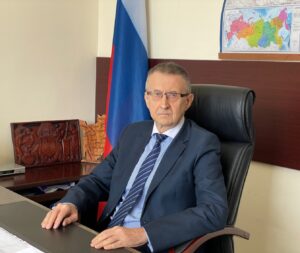The most relevant studies indicate that the development of capitalism in both the industrial and post-industrial era is inextricably linked to the privileged position of the West in the system of international finance and division of labor, to exploitation unbridled use of natural resources and military-political domination. Valery A. MIKHAYLOV, Ambassador of the Russian Federation to the Republic of Burundi, delivers his analysis on the political economy of colonialism and neocolonialism

Historically, the activities of major European trading enterprises such as the British and Dutch East India Companies resembled international paramilitary plunder, relying on private armies and the enslavement of entire peoples, leading to the genocide of minorities and Indigenous Peoples.
Western expansion was based on ideas of racial and national exclusivity comparable to the ideology of Nazism and neo-Nazism and often took extreme forms in practice: apartheid and genocide of entire peoples.
The legacy of colonialism in the Global South persists, notably: in political systems, legislation and values imported from outside, not organically formed, but imposed on developing countries; in the disadvantageous position of former colonies in the international system of division of labor, economic models oriented towards export, not very diversified, based on raw materials and dependent on the international market, artificial state borders defined by the former metropolises, a lack of basic socio-economic infrastructure, access to education and health care; political and armed conflicts; the crushing debts of the countries of the South.
According to the President of the Russian Federation Vladimir Putin, the West began its colonial policy in the Middle Ages. This was followed by the global slave trade, the genocide of Indian tribes in America, and the wars of England and France against China. And today the West continues its colonial policy and does everything to preserve the neocolonial system in the world, which allows it to parasitize, essentially rob the world through dollar power and technological dictatorship, to collect real tribute of humanity and extract the world. main source of undeserved well-being, the rent of the hegemon. Hence the aggression against independent states, traditional values, original cultures, attempts to undermine uncontrollable integration processes, new currencies and centers of global development.
In the 21st century, global inequality remains very high, bearing deep traces of the colonial legacy and the divergent development trajectories of the West and the rest of the world in the 1820s-1960s. Centers of influence, old and new, strive for a long time to subjugate the weakest, without allocating funds for their independent development.
In this regard, the situation with the provision of international aid to poor countries is interesting. Government development assistance is much more limited than commonly believed and does not even reach 0.2% of global GDP, and if we talk about emergency humanitarian aid, it is 0.03%. (the Organization for Economic Co-operation and Development has stated its goal is to provide support from rich states for development programs in the amount of 0.7% of gross national income (in fact, only 0.3-0.4 % are allocated to these objectives). Furthermore, for most countries in Africa, South Asia and a number of other countries expected to receive international aid, financial outflows consisting of the profits of transnational corporations are in reality several times higher than the incoming financial flows of international aid. This is the fundamental point of the relationship between the center and the periphery on a global scale: the rich countries are supposed to help the countries which in reality bring them money. profit.
Russia, which in the Western tradition was positioned as a “prison of nations”, is in reality an example of exactly the opposite approach to the question of relations between central and peripheral regions. In our country, over several centuries of development of the lands of Siberia, the Arctic and the Far East at the national and regional levels, a national system of norms, institutions and mechanisms of interaction between the center and regions, authorities, economic entities and indigenous peoples, different from the Western one, was built. Procurement processes with Western participation and state building in Russia are of a different nature. The people of our country, historically exposed to numerous external threats, have taken the path of building a multinational state on the basis of equal and peaceful coexistence in order to ensure their own security, and sometimes simply their survival, as well as the preservation of traditions, languages, customs and spiritual and moral values. In Russia, not the eradication of the indigenous population of the new lands took place, but their “naturalization”, the transformation of “foreigners” into “ours”.
Currently, against the background of growing “economic weight”, strengthening the influence of China, India, Southeast Asian countries and the crisis of economic globalization, a group of Western states led by the United States seeks to use neocolonial methods to slow the economic downturn. the natural course of development, maintaining an unbalanced model of the world economy, eliminating competitors in the military, political and economic spheres and maintaining its elusive domination over the world. The West seeks to replace the emerging multipolar architecture of the world order with a kind of “rules-based order,” which is in fact an updated version of colonialism.
Ambassador of the Russian Federation to the Republic of Burundi
Valery A. MIKHAYLOV
#Burundi #Eco #Political #economy #colonialism #neocolonialism #history #modernity







